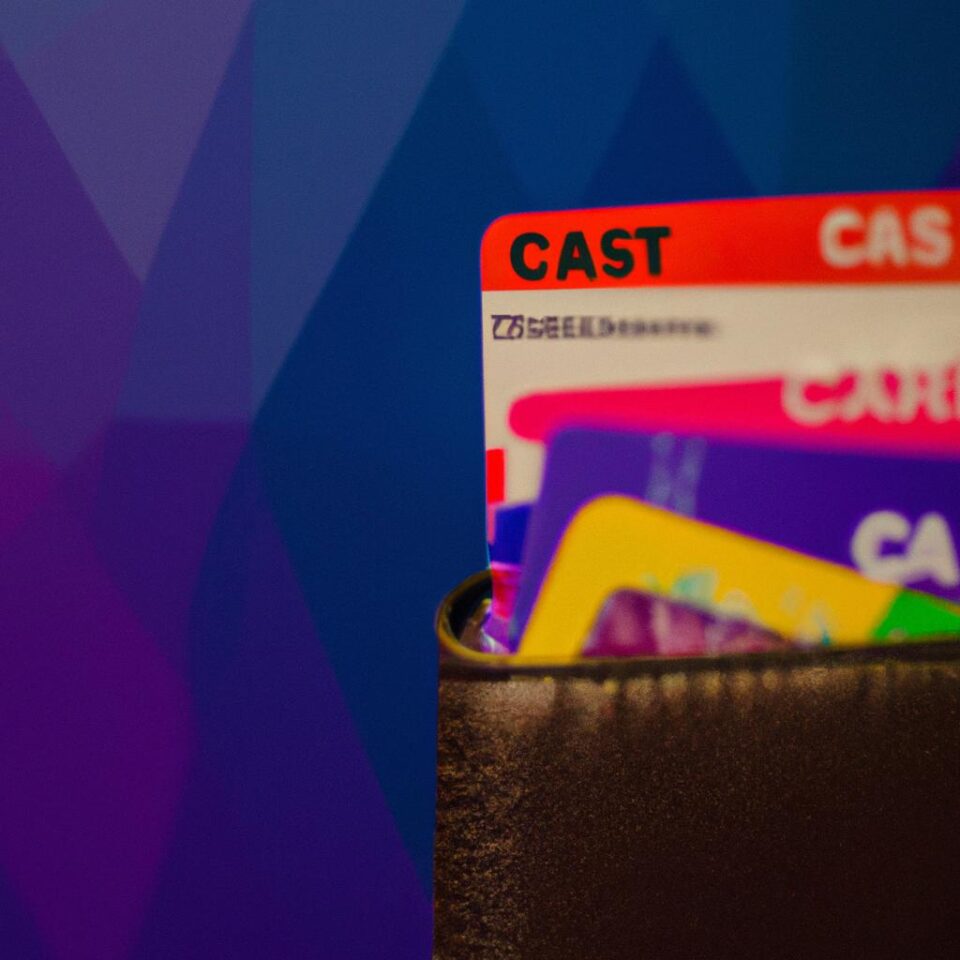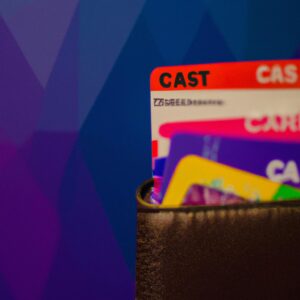Introduction
Having a credit card can be a great way to build credit and purchase large items, as long as you are using it responsibly.
Responsible credit card use is essential in order to maintain a good credit history. In this guide, we’ll discuss the best practices for responsible credit card use, and how to avoid the potential hazards of credit card debt.
This guide will cover:
- Building good credit
- Understanding credit card fees and limits
- Setting up a payment plan
- Dangers of abusing credit cards
- Strategies for reducing credit card debt
- Letting others use your credit card
By the end of this guide, you should have a clear understanding of how to responsibly use credit cards and stay out of debt.
Building Good Credit
Having good credit is an essential part of financial health. It can open up opportunities like lower interest rates on mortgages, car loans, and other lines of credit and can even contribute to a secure future. Credit cards are one of the most common ways to build credit, but it’s important to use them responsibly in order to reap the benefits.
When used correctly, credit cards provide a safe and convenient way to make purchases and pay bills. Cardholders should be aware of their card agreement and any terms, conditions, or fees associated with the card. Paying on time and in full will help you build your credit score and maintain a positive credit history.
Making only minimum payments or missing payments entirely can quickly lead to debt, so it’s important to be mindful of spending habits and always have a plan for how you’ll pay back what you owe. Keeping spending within your means is also key, making sure your expenses don’t exceed your income.
Building good credit takes patience, discipline, and smart decisions. Use this guide to develop better credit habits and take steps towards a stronger financial future.
Understanding Credit Card Fees and Limits
When it comes to using credit cards responsibly, understanding the fees and limits associated with different types of credit cards is essential. Knowing these factors can help you make smarter decisions about how you use your credit card to ensure that you’re not overspending or racking up unnecessary debt.
The fees associated with credit cards generally fall into two categories: annual fees and interest charges. Annual fees are charged once per year, while interest charges are assessed on any balances you carry on your card over time. Additionally, most credit cards will have a limit on the amount of money you can charge in any given month, known as a “credit limit”.
Annual fees can vary widely depending on the type of card you have. For instance, some cards may offer a low ($25) annual fee, while others may charge upwards of $100. Additionally, there may be additional fees or charges associated with the card such as late payment fees, balance transfer fees, cash advance fees, and more, so it important to read the fine print and understand what fees you may be incurring for each transaction.
Interest charges also vary depending on the type of card you have. Most credit cards will assess interest on any balances carried over from month to month. Interest rates range from 0% to 22% (or higher), so it’s important to understand the rate associated with your card. Another factor to consider is the “grace period”, which is the amount of time between the end of your billing cycle and when you need to pay your balance in full to avoid interest charges.
Lastly, most credit cards will come with a set credit limit, which is the maximum amount of money you can charge to your card in any given month. Credit limits can range from as little as $500 to more than $20,000, depending on your credit score. Once you hit your credit limit, you’ll need to either pay down your balance or contact the credit card company to request a higher limit before you can use the card again.
By understanding the fees, interest rates, and credit limits associated with your card, you can make smarter decisions when it comes to using your credit card responsibly. This knowledge will help you to avoid overspending and potentially costly fees and charges.
Creating a Payment Plan for Responsible Credit Card Use
Creating a payment plan is an important step in managing credit card debt. A payment plan can help you set a clear budget and ensure timely payments of your bills. Here are some strategies to consider when creating your payment plan:
- Set a budget to decide how much money you will allocate each month to credit card payments.
- Prioritize your monthly expenses to make sure that you are making the most important payments such as rent or utilities first.
- Keep track of your spending habits and look for areas of improvement to avoid incurring further debt.
- Pay your credit card balance in full each month to avoid interest charges.
- Look into debt consolidation strategies, such as balance transfers, to help pay off your existing debt.
- Make sure to review your credit card statements each month and ensure accuracy of charges.
Creating a payment plan can help you stay on track and avoid costly interest and late fees. Having a budget and paying your balance in full each month will help you build good credit and ultimately save you money in the long run.
Dangers of Abusing Credit Cards
Using credit cards can be a great way to pay for goods and services when you don’t have the ready cash. But using a credit card also comes with certain risks if you don’t use it responsibly. Failing to pay off your balance in full or on time can have serious consequences.
If you fail to make your minimum payment on time, your credit card issuer may charge you a late fee. This fee can range from $25 to $35 but can be higher in some cases. Additionally, your issuer may increase your interest rate – either temporarily or permanently – as a penalty for late payments. The increase in your interest rate can significantly add to the cost of carrying a balance.
Furthermore, missed or late payments will have a severely negative effect on your credit score. This could limit your ability to get new credit cards or loans in the future. It could also make it more difficult to get approved for more favorable interest rates on other credit cards or loans.
Finally, if you are not careful and let your credit card debt get too large, you could ultimately risk bankruptcy. This is the last thing anyone wants to experience, so it’s important to be mindful of how much you are spending and make sure you can always make the required payments.
Overall, it’s important to use your credit card wisely and responsibly to avoid these risks. Keeping up with payments and aiming to pay off your balance in full each month is the best way to ensure you are using your credit card responsibly.
Strategies for Reducing Credit Card Debt
Credit card debt can quickly add up, leaving you feeling overwhelmed and stressed. Fortunately, with the right strategies, you can reduce and eventually eliminate your credit card debt. Here are some tips to get started:
- Understand Your Interest Rate: Knowing your interest rate is the key to successfully tackling your credit card debt. Make sure you understand what interest rate you are paying on your credit card and how it’s calculated. Your interest rate will determine how much of your payment goes toward reducing your balance versus just paying off the interest.
- Create a Budget: Establishing a budget for yourself will help you track your spending, so that you can see where you are overspending and make adjustments accordingly. Use an online budgeting tool or an app to stay on top of your spending.
- Make Weekly or Bi-Weekly Payments: Making payments more often than once per month will help reduce your overall interest payments and speed up the process of paying down your debt. Additionally, if you are able to make weekly or bi-weekly payments, it can be easier to manage the payment amounts.
- Pay More Than The Minimum Balance: Aim to pay more than the minimum balance due each month. You will save on the interest payments, as the more you pay, the more of your balance will be applied towards the principal balance.
- Request a Lower Interest Rate: Reach out to your credit card company and see if they will lower your interest rate. This can be beneficial if you have a good payment history and are in good standing with your credit card company.
- Consolidate Your Credit Card Debt: Consolidating your credit card debt into one loan can help you save money on interest payments and simplify the process of paying down your debt.
These strategies can help you reduce and ultimately eliminate your credit card debt. It takes discipline, but with the right plan, you can find success.
Letting Others Use Your Credit Card
It can be tempting to let someone else use your credit card in a pinch, but this is a risky move that can have serious consequences. While having someone else use it occasionally may result in short-term convenience, it can also lead to long-term financial problems. It’s important to be aware of the potential risks involved with allowing someone else access to your credit card.
By letting someone else use your credit card, you are essentially giving them access to purchase whatever they’d like, up to your credit limit. This means that you are liable for any charges they make, regardless of whether or not you were aware of the purchases they made. If they fail to pay you back, you are still responsible for any balances they incurred. Furthermore, if the other person’s credit score is poor, this could adversely affect your own credit score.
In addition, allowing someone else to use your credit card may also be illegal in certain circumstances. Check with your local laws and regulations regarding credit card use before allowing someone else to use your card.
For these reasons, it is best to avoid allowing anyone else access to your credit card. If possible, it’s also recommended that you monitor your credit card statement closely to ensure that no one has been using it without your permission. By doing so, you can keep your finances and credit score safe from potential risks associated with unauthorized credit card usage.
Closing Remarks
Using your credit card responsibly is essential for achieving financial security. Understanding the dos and don’ts of credit card use will help you make sound financial decisions that will benefit you in the long run. By mastering the basics of credit cards, you can begin to build a strong credit score and begin to responsibly add other financial products to your portfolio.
Taking time to understand the fees and limits associated with different types of credit cards, setting up a payment plan, reducing existing debt, and never allowing another person access to your card are just some of the strategies you can employ to ensure good credit card habits. Take advantage of these tips and remember: with the right knowledge and mindful habits, you can become a master of credit cards.
We hope this guide has been helpful in giving you the tools you need to become a responsible credit card user. With the right attitude and the correct information, you can now make decisions that will help you achieve financial success today and into the future.
comments: 0

